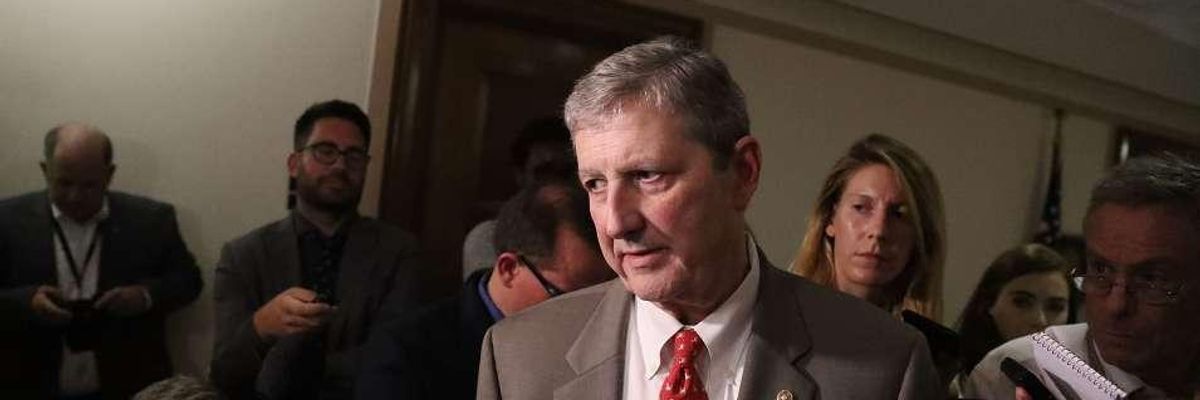Sen. John Kennedy (R-La.) announced his intention Tuesday to introduce four amendments to the Graham-Cassidy bill to repeal the Affordable Care Act (ACA), one of which would forbid states from using the law's block grants to provide residents with a state-run single payer healthcare system--provoking some to question his commitment to the perennial Republican issue of "states' rights."
The Graham-Cassidy bill would repeal many of the ACA's key components, including marketplace subsidies which help low-income Americans afford monthly premiums. These would be replaced by federal block grants, which the Center for Budget and Policy Priorities (CBPP) call "inadequate." The block grants "would be well below current law federal funding for coverage, would not adjust based on need, would disappear altogether after 2026, and could be spent on virtually any health care purpose, with no requirement to offer low- and moderate-income people coverage or financial assistance," says the CBPP.
While critics have sounded the alarm about the bill's insufficient block grants and other provisions which could eliminate coverage for as many as 32 million Americans, Kennedy's only concern about the grants is that states could potentially use the funding to set up systems covering all residents.
"I don't think states should have the authority to take money from the American taxpayer and set up a single-payer system," said Kennedy, adding, "It's our job to make sure that money is properly spent."
In addition to scrapping marketplace subsidies, the block grant funding would also be spent to eliminate the ACA's Medicaid expansion and replace it with a fixed amount paid by the federal government to states for each Medicaid recipient, regardless of actual Medicaid costs.
While Republicans attempt to push through their third attempt to repeal the ACA, proposals for a nationwide government-funded healthcare system has gained traction in recent weeks. Sixteen Democrats signed on as co-sponsors of Sen. Bernie Sanders's (I-Vt.) Medicare for All bill last week; a year ago Sanders was the only member of the Senate Democratic Caucus officially promoting a universal healthcare system.

